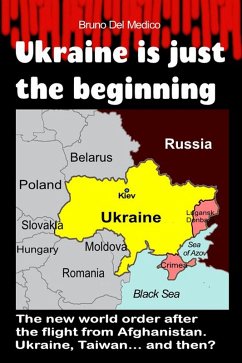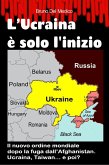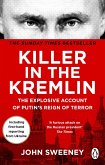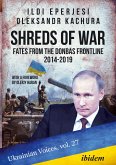With the Taliban taking control of all of Afghanistan, widespread reprisals and harsh repression of women and girls are a certainty, as are massive flows of refugees.
The Taliban rejoice. They accepted the news by exploding bursts of machine guns. Their spokesperson Zabihullah Mujahid says at a press conference. "The Islamic Emirate is a free and sovereign nation. The defeat of the US represents a great lesson for all other invaders and for our future generations, as well as for the whole world."
In fact, the weakness, almost the cowardice of those who were considered the guardians of the world, has not escaped the other international powers, which have long aspired to undermine US and NATO domination on the planet. Certainly Russia and China were among the first to rejoice.
Russian President Vladimir Putin, embroiled in a crisis apparently related to Ukraine's possible accession to NATO, flew to Beijing to meet his Chinese counterpart Xi Jinping.
On February 4, 2022, Putin took part in the opening ceremony of the Winter Olympics. But what was he going to do there, given that Russia was excluded from these games? Evidently, the aim was to meet Chinese President Xi. Surely the two will have toasted the most tragically wrong move that Biden could make.
After the meeting, Putin spoke of "unprecedented relations", and Xi added: "We are working to achieve true multilateralism".
Indeed, the meeting produced a long 99-paragraph statement on shared positions on a number of global issues. The two signatories wanted to demonstrate that the agreement between Beijing and Moscow "has no limits" and "knows no forbidden areas".
In other words, the agreement can expand further also in the military and technological fields, where the two governments have been collaborating intensively for some years, as well as in their respective aims of territorial expansion.
On the merits, the agreement touches on a crucial point: the Taiwan question. Russia reiterates that it considers Taiwan to be an "inalienable part" of China and is opposed to the independence of the island. The Ukrainian question is not mentioned, probably in order not to commit China to an ongoing conflict, but the tacit gentlemen's agreement is evident.
Comments such as "If the Ukrainian crisis spills over into a war, this would open up a historic opportunity for China to resolve the game with Taiwan" appeared on Chinese-language social media. These messages are not censored, a sign that they want to be circulated.
So, Ukraine, then Taiwan. This book raises the question of what the next goals will be.
Dieser Download kann aus rechtlichen Gründen nur mit Rechnungsadresse in A, B, CY, CZ, D, DK, EW, E, FIN, F, GR, H, IRL, I, LT, L, LR, M, NL, PL, P, R, S, SLO, SK ausgeliefert werden.









